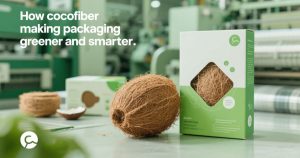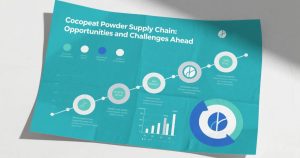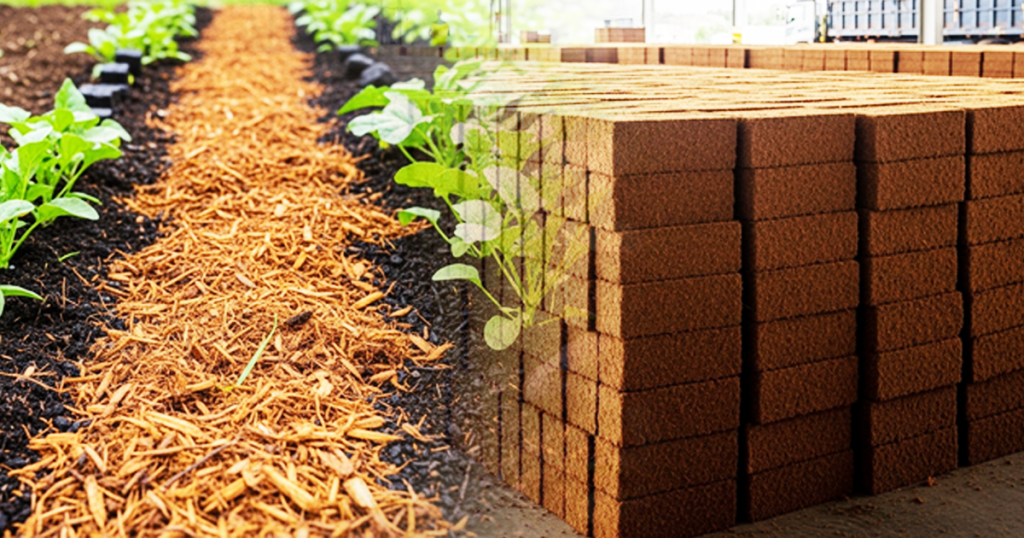Understanding Cocopeat Powder in the Global Context
Cocopeat powder, a byproduct of coconut husk processing, is emerging as a strategic export commodity. As sustainability takes precedence in agriculture, cocopeat offers an eco-friendly solution for soilless cultivation. Its superior water retention and aeration properties make it a preferred substrate in horticulture.
Countries with high coconut production are now capitalizing on this once-discarded material. Global trends suggest a rising demand, particularly from regions pursuing green agricultural practices. While traditionally used locally, the scope of cocopeat has expanded far beyond domestic borders.
International markets are increasingly seeking organic and renewable alternatives to peat moss. Cocopeat’s affordability, availability, and environmental profile give it a distinct edge. The European Union and North America have become key importers, driven by the surge in home gardening and greenhouse farming.
This growing acceptance is reshaping export strategies in coco-producing countries. As a researcher, I’ve examined trade data, buyer preferences, and production models. The statistics indicate a consistent uptick in demand, especially post-2020.
Global supply chain adjustments have favored more localized growing mediums, indirectly benefiting cocopeat. This shift, combined with rising environmental consciousness, presents significant opportunities. However, meeting this demand sustainably and efficiently requires coordinated policy and infrastructure support.
The Export Potential of Cocopeat Powder
Market Demand and Trade Dynamics
In recent years, the international horticulture industry has undergone a substantial transformation. Market players are moving away from non-renewable substrates toward sustainable and biodegradable alternatives. Cocopeat, with its high lignin content and low decomposition rate, fits this need perfectly.
Exporters in Southeast Asia, particularly Indonesia, Sri Lanka, and India, are ramping up production to meet global needs. This surge is mirrored in customs records and export permit applications. Data from global trade monitoring platforms shows increased container shipments of compressed cocopeat powder.
These are mostly directed to Europe, the United States, Japan, and the Middle East. The product’s use extends beyond agriculture, finding applications in hydroponics, mushroom farming, and pet bedding. This diversification improves its market resilience and widens its potential customer base.
Trade fairs and international expos now feature cocopeat as a competitive commodity. Despite its potential, barriers to trade remain, including quality inconsistency and lack of standardization. Exporters must meet phytosanitary regulations and moisture content benchmarks.
Investment in processing technologies and quality control systems is crucial. Research also suggests the importance of tailored marketing to educate buyers on its benefits. Therefore, export growth hinges on both supply capacity and regulatory alignment.
Strategies for Enhancing Export Value
To maximize cocopeat’s export potential, strategic alignment between stakeholders is essential. Farmers, processors, exporters, and government agencies must work in coordination. Training programs can help improve post-harvest handling and reduce contamination.
Additionally, establishing regional cooperatives can streamline logistics and enhance bargaining power. These steps are crucial for meeting global quality expectations.
Technology also plays a transformative role. Advanced drying and sieving techniques improve product uniformity and shelf-life. Automation in packaging and compression enhances shipment efficiency. As global buyers demand traceability, digital tools such as blockchain and QR-based product tracking are being explored.
These innovations elevate the overall competitiveness of cocopeat powder in global markets. Finally, sustainability certification and branding strategies are key to capturing premium segments. Certifications such as OMRI (Organic Materials Review Institute) or Fair Trade boost credibility.
Countries like the Netherlands and Germany place a premium on environmentally certified products. Exporters who adopt these practices are more likely to secure long-term contracts. Research-backed marketing and storytelling can further elevate brand perception abroad.







